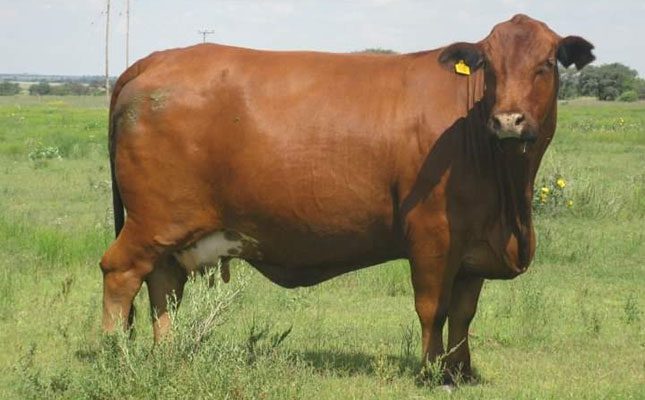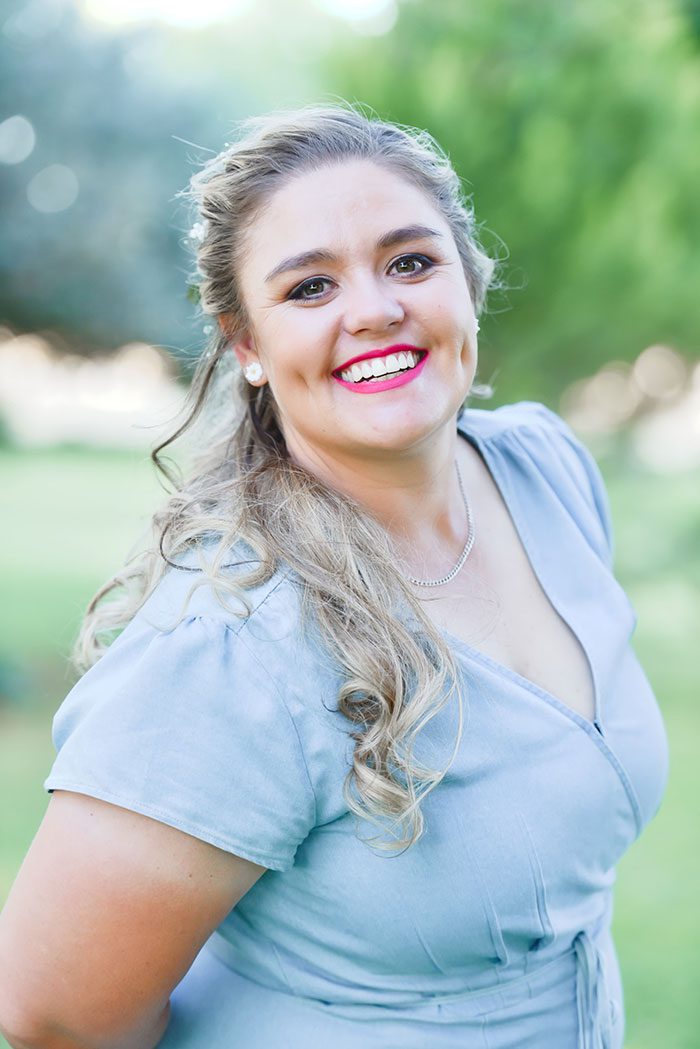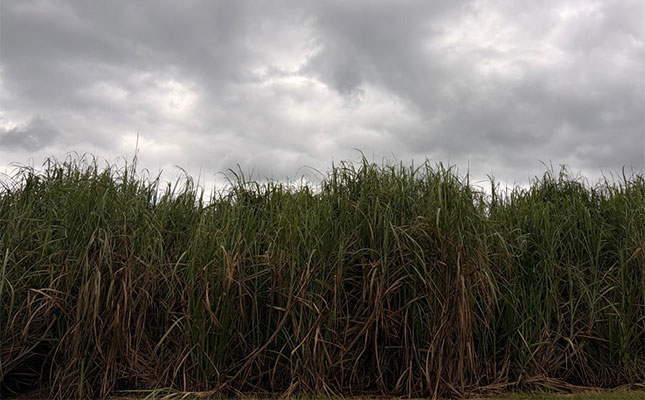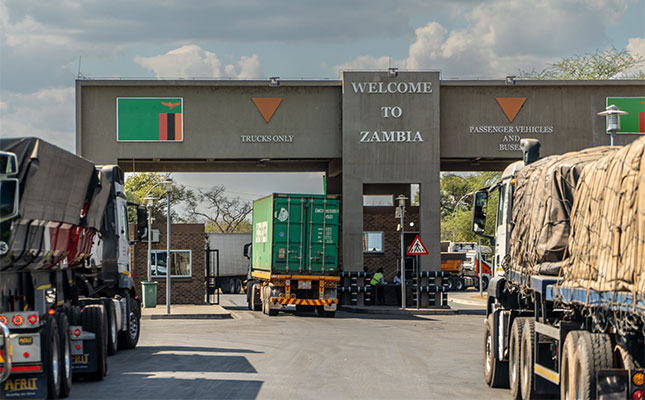
Danielle de Kock, 34, farms in the Hertzogville region in the Free State, where she runs Dannbrie Brangus stud in partnership with her mother Heibrie, and brother Hannes de Kock Jnr.

In addition to the family farming business, De Kock is a partner in a livestock marketing agency established in 2021/22, Elrize Alberts Bemarking (EAB), based in Vryburg, North West. Earlier this year EAB hosted a Droughtmaster stud sale where the average price of animals sold came in at R600 000.
De Kock is also the vice chairperson of Free State Agriculture’s (FSA) Young Farmer Committee, and says it is a privilege to have been voted into office by her peers. She is the first woman to hold the position within the organisation.
She says she was mentored by her father, Hannes (snr), her mother, and her grandfather Danie Botha, who had each imparted knowledge on her.
Her grandfather played an instrumental role. She refers to him as “a man in a million”, who started working as a driver for a co-op, earning R3,50 per month. Botha grew to the point of owning 13 farms and despite numerous ups and downs, continues to farm some 500 adult cattle successfully at the age of 78.
She says it is not always plain sailing and they often disagree, as they are both equally stubborn. “But just being in the veld with him I am able to learn so much, about the land and the veld, about cattle.”
She says he is a good person who does not approve of flashy expenses. His philosophy, and hers, is to measure bank statements rather than bakkie size.
Father’s influence
Her father was a hard taskmaster with high expectations, but she says she appreciates his approach. He was there when she caught and marked her first stud calf at just four years of age.
“I had been kicked and trampled and was covered in blood but I wanted to farm and I remember my dad being so proud of me, bragging about me to other farmers,” she recalled.
She never went to the seaside for a holiday in December because that was when they were planting, and in winter holidays she would oversee a crew of workers who would pick up maize cobs left in the field after harvest.
“My dad would pay me 5% for every bag delivered and after I paid wages to my staff, the profit was mine,” she said.
Her mother started farming after her parents divorced. De Kock says her mom “is not a dreamer – she is all about the black and white facts.
“When I was 16, I spoke to her about wanting to buy a PlayStation with the R5000 I had earned. My mom said to me: ‘Are you going to dream your dreams or bring me your calculations?’”
After thinking it through and making calculations, she instead invested the capital in some mutton merino ewes. A few years later she had a herd of 29 sheep that she sold to purchase her first stud cow for R23 500 – a pregnant cow named Luna bred by “Oom Sias”.
She laughs as she remembers how she used all her money to buy the cow without any means to transport it home. “The auctioneer Andrew Miller said he would arrange to have the cow transported to my farm”.
Increase in women stud breeders
Today she has 32 stud cows and several bulls. She is also proud of the increase in women stud breeders. “When we started there were only two women involved in the 178 Brangus studs in SA. Today we are a group of up to nine or 10 women breeders.”
Although the family has crop lands, they do not currently do any cropping. Instead, these lands are leased out to other young farmers. “I do not lease land out to mega farmers. I want to give the young farmers a foot in the door.”
She has a feedlot on her farm and will fatten up excess calves not selected for stud purposes, as well as occasionally buying in thinner C3 cows to fatten for slaughter at the local abattoir roughly 40Km from the farm.
“My dream for the future is to be able to plant my own maize to use in my feedlot rather than buying in maize. “This would also be a dream for my brother who is a crop farmer at heart.”
Challenges for young farmers
De Kock says getting a foot in the door is one of the biggest challenges for young farmers. “Mega farmers are buying up all the land and growing even bigger. You must ask when enough is enough. There is no gap for a young farmer to start unless you have inherited or been given land.”
Added to this is access to financing through the banks and a lack of security. In her case, she had purchased cows from her father. “My grandfather was willing to stand surety for me to get the loan from the bank. He could have lost everything trying to help, but I could not have done it otherwise.”
A third challenge she raises is more specific to her industry, the meat industry. She says profitability is a huge challenge and this is the first time in four years she is expecting to make a profit.
“This year the slaughter price and maize price ratio is actually right for me to make a profit, compared to the losses I have made over the last three to four years.”
She says there is something terribly wrong with the industry when she gets R78/kg as a slaughter price, but can find biltong at a retail outlet in Bloemfontein priced at R780/kg.
“If we (the farmer) get a drop of 50c/kg on our price, it can mean the difference between making a profit or a loss. Then we go to a shop and see these prices; how can that biltong cost R700 more than what the farmer got?”
Youth drain
De Kock says some of the abovementioned issues are resulting in a lot of young farmers seeking work outside the country, or as foremen or managers for large-scale farmers.
She says out of a membership of some 3000 farmers at Free State Agriculture, only about 200 are under the age of 40.
“So many young farmers are going to places like America to drive tractors to save up enough money to come back and buy a farm,” she points out.
She says she has clients who send money back home, ask her to buy cattle for them, that are then managed by a local farmer so that they can start farming when they finally return from migrant work.
She again highlights the mega farmers as a challenge in this instance, saying when land becomes available for sale, these big players drive prices too high for entry level farmers to compete.
She cites another example of a potato farmer who has 27 foremen working for him. “They work for him but none get an opportunity to actually do their own thing.”
She fears that South Africa will go the same route as the factory farming seen in places like the US, particularly in the meat industry. She uses dairy as an example, saying when she grew up nearly every farm had a milk shed and there were daily collections.
“Today there is only one dairy farmer remaining in our entire region (Hertzogville region 13). Every farm has an abandoned milk shed.”
She says it feels like the meat industry is going the same way and says people who only farm to sell weaners are farming in the red. “It is death by a thousand cuts.”
Changes need to come, but she says farmers can also be stubborn. For example, she says, a farmer will complain about a 50c drop in prices, which equates to roughly R120 on a 240kg calf. However, when she suggests a feedlot at their farms to earn a potential of R500 more, they tell her that is too much effort.
Message to young farmers
De Kock says her view, and that of the YF Committee, is that you cannot sit back and wait for things to happen.
“Put your hand up and get involved everywhere – in organised agriculture, in your local community. Join a local toutrek (tug of war) club. “Do not ask why me? Rather say ‘why not me’.”
She says change begins with each individual and she may not be a big, rich farmer, but where she can, she will find a way to help. She lists examples such as helping at old age homes, taking ownership of roads, and doing bush clearing along verges.
She also has a message to the fathers and their children. She says the elders need to realise their children are just looking for a foot in the door.
“Give them the opportunity to try their ideas and make mistakes. It is by learning through our mistakes that we can achieve success.”
To the sons she says, they should not fight with their fathers. “Grab the opportunity. Be humble and learn from the experience he has built up over a lifetime.”
She goes one step further, though, and urges fathers not to overlook their daughters as potential successors in their farming enterprises.
“Stop raising your daughters to become the wife of a farmer. Give her the chance too. Look at all your children; the child that is interested in farming will show you that from very young age.”
For more information contact Danielle de Kock email [email protected].
Get trusted farming news from Farmers Weekly in Google Top Stories.
➕ Add Farmers Weekly to Google ✔ Takes 10 seconds · ✔ Remove anytime






